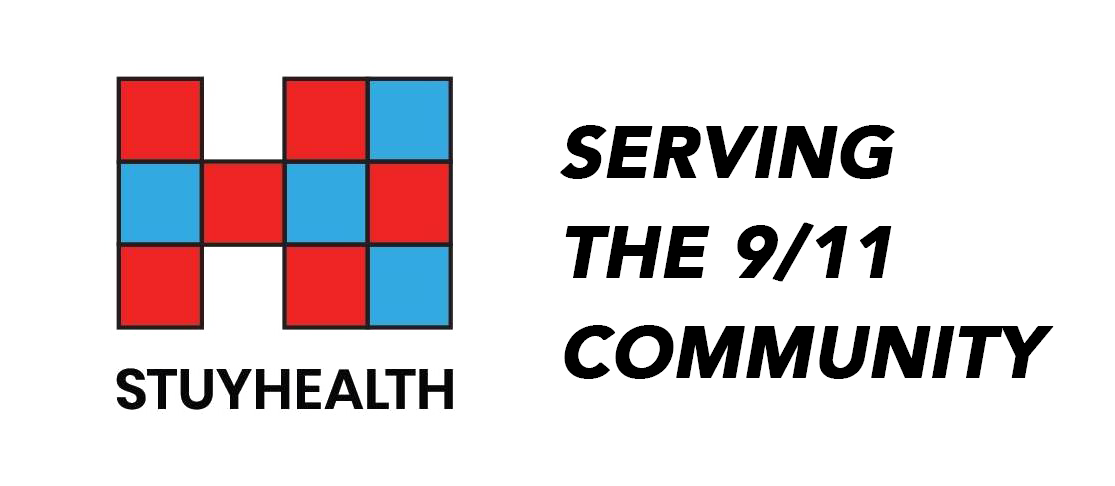List of Covered Conditions
The following is the list of conditions that the WTC Health Program is certified to treat at no out-of-pocket cost to the patient. The Program also covers medically associated conditions, which are conditions that result from the treatment or progression of a certified condition. 9/11 Survivors with any of the following conditions, especially if they believe them to be WTC-related, are strongly encouraged to apply.
Covered conditions must be certified through the Program and treated through a Program-affiliated provider. (Certification is an official decision by the Program that your condition is related to your 9/11 exposure and meets Program certification policies and criteria.)
Acute Traumatic Injuries
Acute traumatic injuries are characterized by physical damage to your body caused by hazards or adverse conditions. Examples include:
Burn
Complex sprain
Eye injury
Fracture
Head trauma
Tendon tear
Airway and Digestive Disorders
Airway and digestive disorders, also known as Aerodigestive Disorders, are a group of disorders that affect breathing airways, such as your sinuses or lungs, or upper digestive tract, such as your esophagus. Examples include:
Asthma
Chronic cough syndrome
Chronic laryngitis
Chronic nasopharyngitis
Chronic respiratory disorder- fumes and vapors
Chronic rhinosinusitis
Gastroesophageal reflux disorder (GERD)
Interstitial lung disease
New-onset, and WTC-exacerbated chronic obstructive pulmonary disease (COPD)
Reactive airway dysfunction syndrome (RADS)
Sleep apnea (medically associated to another airway or digestive disorder)
Upper airways hyperreactivity
Cancers
Cancer may be defined as the uncontrolled growth and spread of cells. It may occur at any place in the body, and it makes it difficult for the body to function normally. Examples include:
Blood and lymphoid tissue (including lymphoma, myeloma, and leukemia)
Breast
Childhood cancers
Digestive system (including colon and rectum)
Eye and orbit
Ovary
Head and neck (oropharynx and tonsil)
Prostate
Mesothelioma
Rare cancers (read a statement from the Administrator about Rare Cancers for more information)
Respiratory system (including lung and bronchus)
Skin (melanoma, non-melanoma and carcinoma in situ)
Soft and connective tissue
Thyroid
Urinary system (including kidney and bladder)
Uterine cancer, including endometrial cancer (learn more about this new addition and what it means)
Mental Health Conditions
Mental health conditions include a wide range of conditions that affect your mood, thinking, and behavior. Examples include:
Acute stress disorder
Adjustment disorder
Anxiety disorders
Depression
Dysthymic disorder
Generalized anxiety disorder
Major depressive disorder
Panic disorder
Post-traumatic stress disorder (PTSD)
Substance use disorder
Musculoskeletal Disorders (applies to WTC Responders only)
Musculoskeletal disorders are chronic or recurring disorder of the musculoskeletal system caused by heavy lifting or repetitive strain on the joints. Examples include:
Carpal tunnel syndrome (CTS)
Low back pain
Other musculoskeletal disorders
Maximum Time Interval and Cancer Latency Period
To be certified for some airway and digestive health conditions, your condition must meet an additional requirement known as maximum time interval. Maximum time intervals are the maximum amount of time that could have gone by between the date of your last 9/11 exposure and the onset of symptoms of your airway and digestive health condition. Specific requirements are included in the Member Handbook in the Maximum Time Intervals for Aerodigestive Disorders section.
To be certified for cancer, minimum cancer latency requirements must be met. Latency is the amount of time that has passed between your initial 9/11 exposures and the date you were first diagnosed with cancer. Specific requirements are included in the Member Handbook in the Cancer Latency section.
